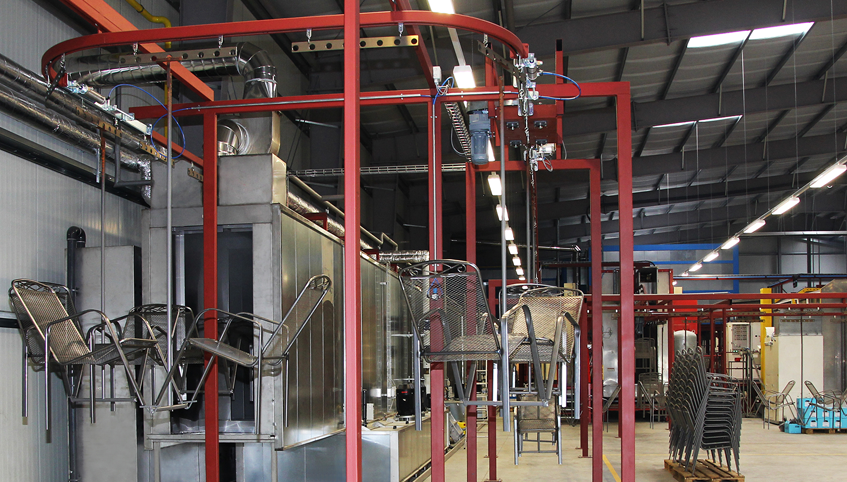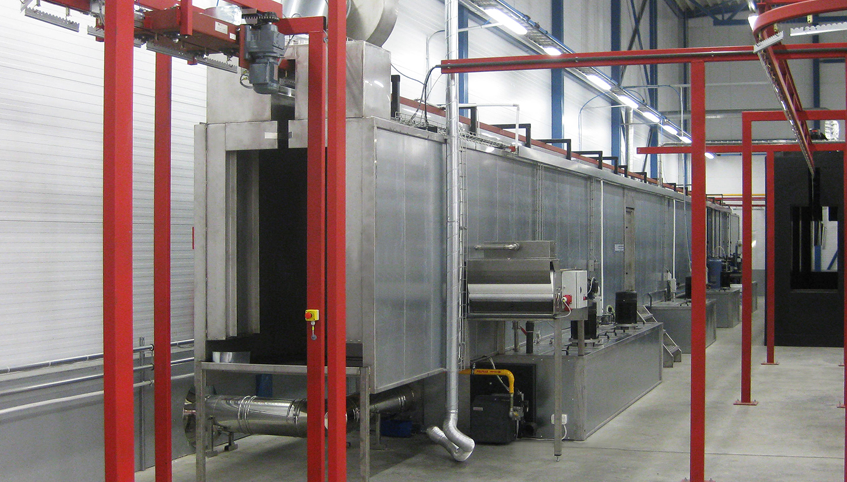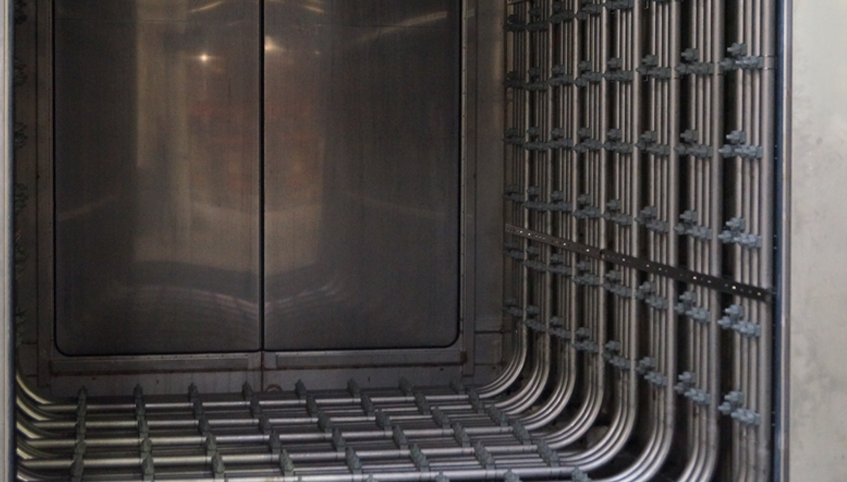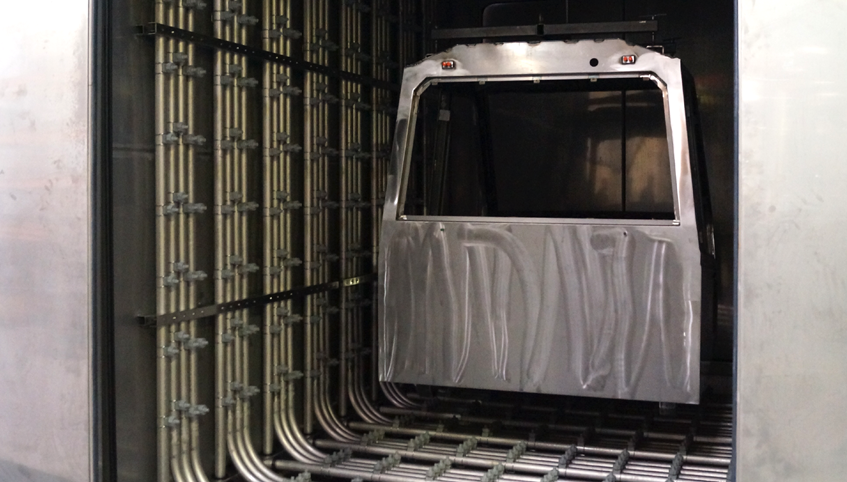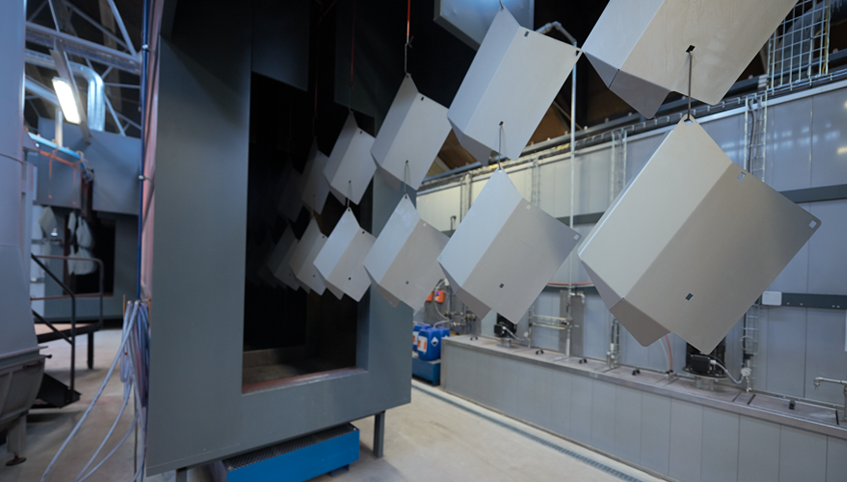Tunnel pretreatment
In spray pretreatment – or tunnel pretreatment – the product passes through a tunnel providing a number of steps in preparing the product for the application process. These steps are specifically designed for each type of item or product.
The tunnel pretreatment design as such is customized according to the product, dictating the numbers and length of the steps needed. Also temperatures and materials are taken into careful consideration.
The AABO-IDEAL pretreatment systems are insulated to prevent condensation and to decrease loss of heat.
Process steps
Every process step consists of a tank with one or more strong vertical pumps distributing the liquid to a number of rinse ramps fitted with nozzles.
Pumps
The pumps are all highly efficient and made of acid proof steel. All motors are 100% IEC standard with no modification, and very easy to replace if needed.
All pumps are tested and certified according to the AABO-IDEAL quality control. They are mounted vertically in the tanks and immersed in the liquid.
Nozzles
The rinse ramps are made of stainless steel, and the quick clip-on nozzles are made of plastic. This is a very rigid construction. Also memory nozzles are a possibility, making the cleaning and the service very easy. Both types are easily replaced.
Intermediate zones
The product is dripping off in the intermediate zones between every process step. The length of the zones depends on the dimensions of the product, and the speed of the conveyor helps to minimize mixing of content in the tanks.
We provide stairs, doors and lights for all intermediate zones, and also a non-slip gangway above all tanks. It makes the system service friendly, safe and gives easy access.
Exhaust saves energy and protects the conveyor
Uniquely developed sealing by the ventilation to protect the conveyor from the steam. This is a better solution than brushes, which will wear out and be a source of contamination.
Reverse cascade system saves water
The rinse water is lead through the line in a reverse cascade rinse to minimize consumption of rinse water. We always design our systems with a minimum of two rinse steps, often even three.
The design includes pre and after rinse systems, electronically controlled and ensuring minimal consumption of water, energy and chemicals.
Heating
Heating by oil, gas, water, steam or electricity, all on request. Often the way of heating is decided according to availability, market price and chemicals in use.

